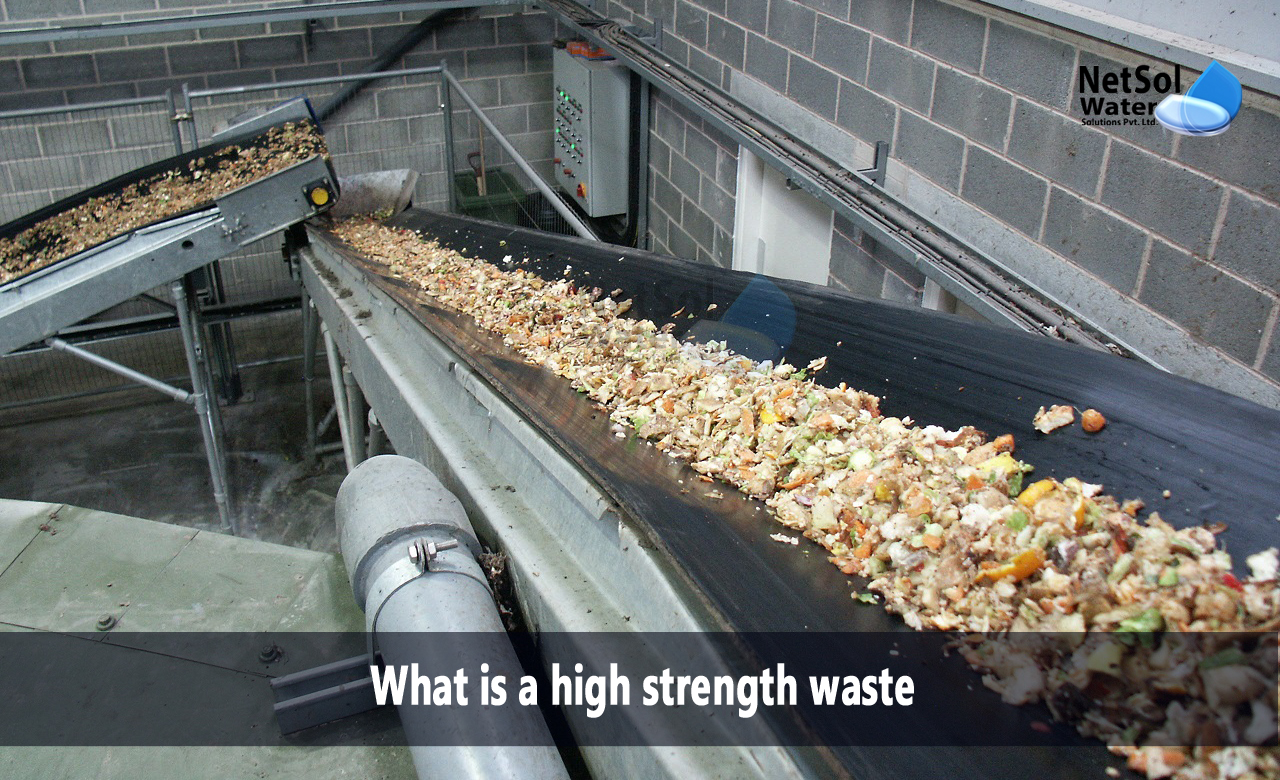The management of waste has become a crucial aspect of contemporary society, with its significance increasing over time. Understanding the different types of waste is essential for efficient disposal and environmental protection as we continue to generate waste from a variety of sources. High-strength waste is one type of garbage that requires extra care. We'll explore high-strength waste's definition, origins, and special waste management issues in this blog post.
What is a high strength waste?
Waste materials that have abnormally high concentrations of organic matter or contaminants, such as chemicals, heavy metals, or pathogens, are referred to as high-strength waste, or HSW for short. These waste materials might be liquid, solid, or semi-solid, and because of their potentially hazardous or corrosive nature, they usually need special handling and disposal techniques.
Sources of High-Strength Waste
Industrial Processes: Industrial operations frequently result in the generation of high-strength waste. A vast variety of waste products, some of which may be extremely concentrated in hazardous materials, are produced by factories, refineries, and manufacturing facilities. Heavy metals, organic contaminants, and chemicals can all be found in these industrial discharges.
Wastewater Treatment Plants: High-strength waste can be produced even by wastewater treatment plants. It can be difficult to control some sludge results from sewage and industrial wastewater treatment systems because of their high pollutant concentrations.
Agriculture: Livestock dung, which is rich in nutrients and organic materials, is a high-strength waste product of agricultural activity. It can result in environmental problems including nutrient runoff and water contamination if improperly managed.
Healthcare: Biohazardous waste, which includes chemicals, sharp items, and infectious waste, is produced by medical facilities. To reduce dangers to the environment and public health, proper disposal is crucial.
Challenges in Managing High-Strength Waste
Environmental Impact: Improper management of high-strength waste can have detrimental effects on the environment. Contaminants that are released into the air, water, or soil can damage ecosystems and endanger the health of both people and wildlife.
Specialised Treatment: Specialised treatment techniques are usually necessary for high-strength waste, and they can be expensive and complicated. This covers procedures like chemical treatment, cremation, or the application of sophisticated filtering systems to lower the amounts of dangerous materials.
Regulatory Compliance: When handling high-strength trash, adhering to environmental norms and standards is essential. Fines and other legal repercussions may result from breaking these restrictions.
Health Risks: People who come into touch with high-strength waste may be seriously at risk for illness since it frequentlycontains bacteria, chemicals, or heavy metals. Tight safety precautions must be taken when handling and disposing of this.
Transport and Storage: Care must be taken when transporting and storing high-strength waste to avoid mishaps, spills, and contamination. It's crucial to use safe transportation techniques and adequate confinement.
Solutions for Managing High-Strength Waste
Advanced Treatment Technologies: By lowering the concentration of contaminants, advanced treatment techniques like chemical precipitation, thermal treatment, and bioremediation can be used to lessen the environmental impact of high-strength waste.
Source Reduction: Putting source reduction techniques into practise can aid in lowering the initial production of high-strength trash. Industries, for instance, might adopt recycling and reuse programmes or optimise their processes to produce less trash.
Regulatory Compliance: Adhering strictly to environmental norms and standards is essential to the efficient management of high-strength waste. Compliance guarantees the safe and responsible handling, transportation, and disposal of the waste.
Education and Awareness: Educating industries, healthcare facilities, and the public about the proper handling and disposal of high-strength waste is essential to reduce its negative impacts and promote responsible waste management practices.
Research and Innovation: Continuous research and innovation in waste management technologies can lead to more efficient and cost-effective methods for handling high-strength waste.
Conclusion:
Waste classified as "high-strength" needs to be managed with extra caution and attention because it is a complicated and difficult category. It originates from a number of places, such as wastewater treatment, agriculture, industrial activities, and healthcare. The hazards to the environment and human health posed by high-strength waste necessitate strict adherence to regulations and sophisticated treatment techniques. To preserve the environment and public health, we must keep investigating and putting into practise creative ideas to deal with the problems caused by high-strength waste.
Netsol Water is Greater Noida-based leading water & wastewater treatment plant manufacturer. We are industry's most demanding company based on client review and work quality. We are known as best commercial RO plant manufacturers, industrial RO plant manufacturer, sewage treatment plant manufacturer, Water Softener Plant Manufacturers and effluent treatment plant manufacturers. Apart from this 24x7 customer support is our USP. Call on +91-9650608473, or write us at enquiry@netsolwater.com for any support, inquiry or product-purchase related query.



